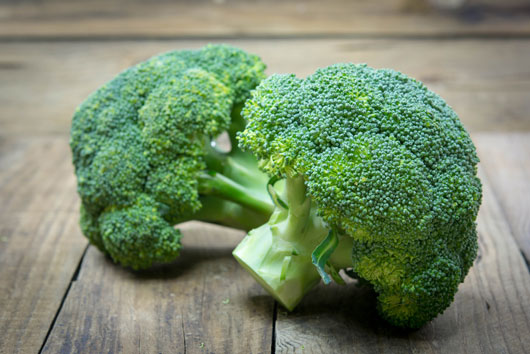
Cold and flu season is in full swing so we’re all looking for immune system boosters and natural ways to keep illness at bay. And every year there’s a new miracle supplement that’s guaranteed to shorten colds or prevent illnesses entirely. Sadly, most of these turn out to be pricy placebos. Of course, it’s important to know what you’re immune system is. The National Institute of Health (NIH) says: “An immune response is generally divided into innate and adaptive immunity. Innate immunity occurs immediately, when circulating innate cells recognize a problem. Adaptive immunity occurs later, as it relies on the coordination and expansion of specific adaptive immune cells. Immune memory follows the adaptive response, when mature adaptive cells, highly specific to the original pathogen, are retained for later use.
The key to keeping your immune system in tip-top shape is a healthy lifestyle all year round. However, there are some natural immune system boosters for those times when you’re being exposed to more germs than usual.
The first step in knowing how to boost your immune system is knowing what to avoid. It goes without saying that you shouldn’t smoke or spend time cooped up with second-hand smoke. It’s also smart to avoid alcohol—it’s okay to have a cocktail now and then, just don’t overdo it. If you needed another reason to curb your sugar intake, the sugar in two 12-ounce sodas can inhibit your white blood cells’ ability to attack bacteria. Stress is.
Read Related: Stay Strong: 5 Key Thing to Help you During Cold and Flu Season

Overuse of antibiotics is another huge contributor to lower immune function as well as resistant strains of bacteria. The CDC stresses the importance of taking antibiotics as directed and only taking them if your doctor says they are necessary. Skipping doses, failing to finish the full course and taking antibiotics that were prescribed to someone else make it harder for you to fight infection and there is a real danger that at some point antibiotics won’t work at all. One of the biggest misconceptions people have is that they fight every type of illness. Antibiotics do not fight viruses or fungi at all, they only work on bacterial illnesses. They do not cure colds, flu, coughs, sinus infections and sore throats other than strep.
There are several lifestyle changes you can make to keep your immune system at its best. Sleep is essential for your mental and physical health, if you don’t give your body adequate time to recharge you won’t be able to think or fight diseases as well. Having a cold is no excuse to skip the gym (just be sure to wipe down your machines!) as long as you don’t overdo it. Regular workouts keep your immune system in shape and when you’re sick, moderate exercise can actually increase your ability to fight off infection and help flush out toxins. Another excellent way to keep everything flowing and flushing is to drink plenty of water. It helps you produce lymph, which is essential for detoxifying and moving white blood cells.

If you eat a healthy, well-balanced diet that includes lots of fruit and veggies, you may not even need to take any supplements. Selenium, which is found in garlic, broccoli and tuna, boosts your immune system and may even help fight some types of cancer. Vitamin A is another important factor in fighting disease and it’s good for your skin—the first line of defense against germs. Make sure to include plenty of orange foods like carrots, yams and cantaloupe in your diet. Bananas, lentils, chickpeas and leafy greens are rich in B vitamins. Vitamin E can be found in nuts, spinach and broccoli. And we all know vitamin C and zinc help prevent and shorten colds. Lean meat, yogurt, eggs and beans are good sources of zinc; citrus fruits, leafy greens and papaya are loaded with vitamin C. Research has also shown that vitamin D plays a huge role in immune function. This is the one nutrient that you may not be able to get enough of from food and sunlight is scarce in the winter so you should talk to your doctor about whether you should be taking a supplement.
We’ve been hearing a lot about probiotics and how they help digestion. What you may not know is that your intestines have more immune cells than any other part of your body. Maintaining a proper balance between good and bad bacteria in your gut keeps your entire immune system running smoothly. Yogurt with live active cultures is the best source of probiotics since many supplements aren’t regulated.
Other foods that may help you stay healthy are oregano oil, shiitake mushrooms and green tea. If you feel a cold or flu coming on, chicken soup really does make you feel better. It contains carnosine, which helps you fight off infection. Finally, an ounce of prevention is worth a pound of cure. Good old-fashioned frequent hand-washing is the best way to avoid picking up germs in the first place.











